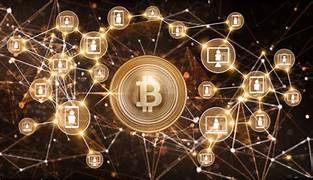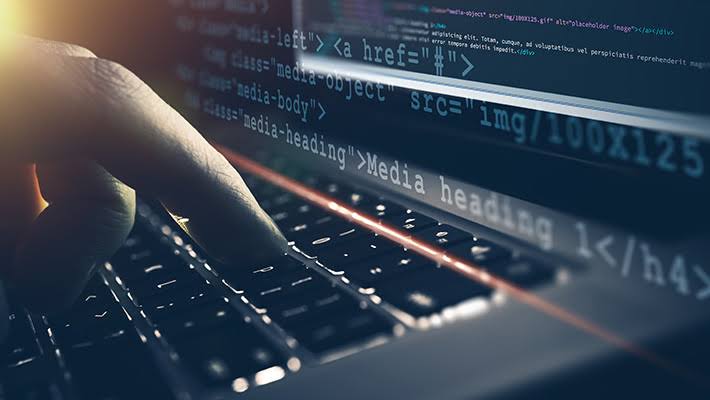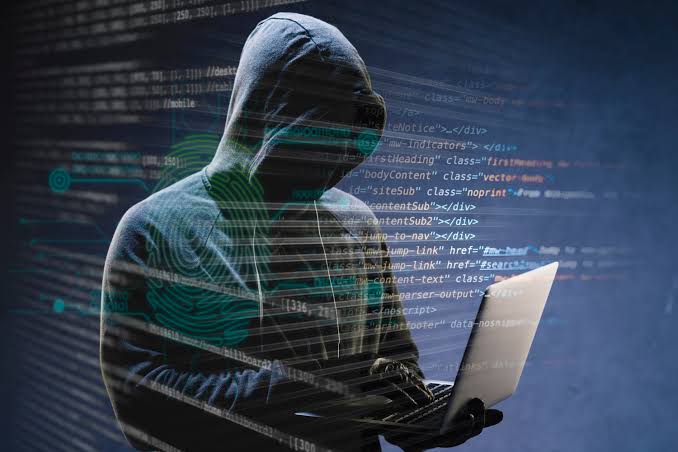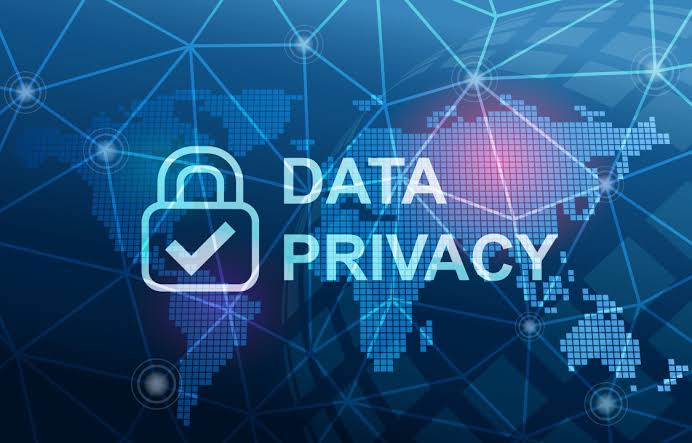
Blockchain Beyond Bitcoin: Real-World Applications.
Blockchain is no longer just the technology behind Bitcoin. Its real-world applications are revolutionizing industries like healthcare, supply chain, finance, voting, and digital identity. By enabling secure, transparent, and tamper-proof data sharing, blockchain is solving long-standing problems across sectors. This article explores how blockchain is transforming the modern world—well beyond cryptocurrency and into everyday life.
✨ Raghav Jain

Introduction
Blockchain technology burst into the public eye with the rise of Bitcoin in 2009. While most associate blockchain solely with cryptocurrencies, this innovative technology is fundamentally a secure, transparent, and decentralized method of recording data that can be applied far beyond financial transactions. At its core, blockchain offers a ledger system where every transaction is verifiable and immutable, making it a powerful tool for trust and efficiency.
Let’s explore the various real-world applications of blockchain technology, moving past Bitcoin and diving into how industries across the globe are harnessing its potential.
1. Supply Chain Management
One of the earliest and most effective non-crypto uses of blockchain is in supply chain tracking. In complex supply chains involving multiple stakeholders, blockchain offers transparent records that all parties can trust.
Use Case:
Walmart and IBM collaborated to use blockchain in tracking the origin of food items. A process that used to take seven days now takes just 2.2 seconds, ensuring faster recalls of contaminated products.
Benefits:
- Provenance tracking
- Reduced fraud
- Streamlined logistics
- Real-time inventory updates
2. Healthcare and Medical Records
In healthcare, patient data is often fragmented across multiple systems and providers. Blockchain offers a decentralized patient record system that improves accessibility, security, and accuracy.
Use Case:
Estonia uses blockchain to secure over 95% of its health records, providing both doctors and patients access to real-time, tamper-proof data.
Benefits:
- Immutable patient history
- Real-time access for patients and doctors
- Data privacy and consent management
- Reduced administrative costs
3. Voting and Electoral Systems
Voting systems are plagued with challenges like voter fraud, low transparency, and questionable results. Blockchain-based voting platforms offer a tamper-proof and transparent solution.
Use Case:
In 2019, Utah County in the U.S. used blockchain voting for overseas military personnel in municipal elections via the Voatz app.
Benefits:
- Secure, remote voting
- Transparent auditing of results
- Elimination of fraud
- Increased voter participation
4. Digital Identity Verification
Identity theft and data breaches are rising. Blockchain can help create self-sovereign identities, where users own and control their personal information.
Use Case:
Microsoft’s “ION” is a decentralized identity network built on Bitcoin’s blockchain, aiming to replace traditional username/password systems.
Benefits:
- User-controlled data
- Simplified KYC processes
- Reduces fraud in banking and government services
- Enhanced online privacy
5. Real Estate and Land Registry
Land ownership disputes are common in many countries due to forged documents or manual errors. Blockchain ensures transparent and secure land ownership records.
Use Case:
In India, Telangana state has piloted blockchain land registries to eliminate disputes and fraud.
Benefits:
- Transparent property transactions
- Fraud prevention
- Faster property transfers
- Reduced reliance on middlemen
6. Intellectual Property & Digital Rights Management
Artists, writers, and musicians often struggle to prove ownership and receive royalties. Blockchain enables immutable proof of creation and automated royalty payments using smart contracts.
Use Case:
Platforms like Audius use blockchain to allow musicians to control their content and receive direct payments from fans.
Benefits:
- Copyright protection
- Automated payments
- Transparent tracking of content use
- Reduces intermediary fees
7. Banking and Finance (Beyond Cryptocurrencies)
While Bitcoin is a financial application, blockchain in finance is about far more—like cross-border payments, fraud detection, and real-time settlement.
Use Case:
Ripple (XRP) provides fast, low-cost international transactions. JP Morgan’s Onyx platform uses blockchain for interbank transfers.
Benefits:
- Reduced transaction costs
- Real-time clearing and settlement
- Improved fraud detection
- Better auditing capabilities
8. Energy and Utilities
The energy sector is using blockchain for peer-to-peer energy trading, decentralized grids, and transparent billing systems.
Use Case:
In Brooklyn, the Brooklyn Microgrid allows residents to buy and sell solar energy to each other using a blockchain platform.
Benefits:
- Enables renewable energy trade
- Transparent billing
- Reduced energy waste
- Empowers local energy producers
9. Charity and Humanitarian Aid
Donors often hesitate due to concerns about how their funds are used. Blockchain offers transparent donation tracking, ensuring funds go where they are intended.
Use Case:
The Red Cross has tested blockchain for cash-based disaster aid to ensure traceability and accountability.
Benefits:
- Transparent allocation of funds
- Prevents corruption and misuse
- Builds donor trust
- Faster aid distribution
10. Education and Credential Verification
Forged degrees and fake certificates are a major issue. Blockchain offers verifiable, immutable educational credentials.
Use Case:
MIT uses blockchain to issue digital diplomas that can be easily verified by employers.
Benefits:
- Instant verification
- Eliminates fake credentials
- Streamlined hiring process
- Portable academic records
Blockchain, though initially popularized as the underlying technology of Bitcoin, has emerged as one of the most transformative innovations of the 21st century, impacting various sectors beyond cryptocurrencies by offering a decentralized, immutable, and transparent ledger system. While Bitcoin merely scratches the surface, blockchain’s deeper potential lies in its ability to record and verify transactions without intermediaries, reducing costs, increasing efficiency, and establishing trust across digital ecosystems. In the realm of supply chain management, blockchain ensures end-to-end visibility by recording every step a product takes from origin to delivery. For instance, Walmart partnered with IBM to track food sources using blockchain, cutting tracking time from days to mere seconds, which enhances food safety and reduces waste. Similarly, healthcare systems are adopting blockchain for secure, accessible, and unified patient records that ensure interoperability between hospitals, reduce medical errors, and safeguard patient data privacy. Estonia has implemented blockchain at a national level, storing 95% of its health records in a decentralized network. In voting systems, the technology promises transparent and tamper-proof elections; Voatz, for example, allowed remote blockchain voting for U.S. military personnel in Utah, showcasing how democratic participation can be enhanced through digital trust. Identity verification is another space disrupted by blockchain, offering self-sovereign identities where individuals control their data, such as Microsoft’s ION network, which replaces traditional username-password models with decentralized identifiers, thus reducing identity theft and fraud. In real estate, land titles often fall victim to disputes and fraud, especially in countries with weak record-keeping; blockchain ensures that land ownership records are immutable and publicly verifiable, as seen in Telangana, India, where blockchain was piloted for land registries. The entertainment and creative industries are leveraging blockchain to combat piracy and manage digital rights. Artists can timestamp their creations on-chain and automate royalty payments through smart contracts, ensuring they receive fair compensation—platforms like Audius and Mycelia are already disrupting music distribution using these methods. In banking and finance, blockchain is revolutionizing cross-border payments, reducing costs and settlement times while increasing transparency. RippleNet and JP Morgan’s Onyx exemplify how traditional finance is integrating blockchain to facilitate interbank transfers, manage compliance, and enhance audit trails. Even central banks are exploring CBDCs (Central Bank Digital Currencies), highlighting blockchain’s shift from fringe to foundational. The energy sector is embracing blockchain for decentralized energy grids and peer-to-peer energy trading platforms; the Brooklyn Microgrid allows neighbors to trade excess solar energy using smart contracts, making energy distribution more sustainable and democratized. Charitable organizations and NGOs face trust issues concerning fund allocation, but blockchain restores donor confidence through transparent, traceable donations. The Red Cross and World Food Programme have piloted blockchain to deliver aid in conflict zones, ensuring the right people receive assistance without leakage. In education, credential fraud is rampant; however, universities like MIT are issuing diplomas on the blockchain, allowing instant verification by employers, which also reduces background verification costs and time. Logistics and international trade benefit from blockchain's tamper-resistant records, enabling customs clearance automation, document digitization, and dispute resolution. Ports like Rotterdam and major shipping companies like Maersk have integrated blockchain to streamline container tracking, reduce paperwork, and lower costs. The legal sector uses blockchain for digital notary services, timestamping contracts, and managing intellectual property rights in a secure and time-stamped manner. Furthermore, government services from licenses to social benefits can be managed transparently using blockchain, reducing bureaucratic inefficiencies and corruption. Countries like Dubai are aiming to become paperless using blockchain in over 50% of their government services. In insurance, blockchain simplifies claims processing by reducing fraud and speeding up claim approvals via smart contracts that automatically verify and execute payments when certain conditions are met. Companies like Etherisc have piloted blockchain-based flight insurance where payouts are triggered automatically if a flight is delayed. Blockchain also underpins the growth of Decentralized Finance (DeFi), enabling lending, borrowing, and trading without traditional intermediaries; protocols like Aave, Compound, and Uniswap offer financial services run by smart contracts, empowering the unbanked population. The rise of Non-Fungible Tokens (NFTs) is another application allowing digital ownership of art, music, real estate, and collectibles to be verified and traded on blockchain marketplaces like OpenSea. In cybersecurity, blockchain secures data from tampering, as it distributes records across nodes, making hacking difficult. Enterprises are now using blockchain to secure their digital communications, IoT devices, and user authentication. Even in agriculture, blockchain helps farmers trace seeds, monitor crop cycles, and access real-time market prices, thus empowering smallholders with better control and fair pricing. Agricultural giants like Bayer and AgriDigital use blockchain to ensure traceability and trust in food production. Legal cannabis industries and pharmaceutical companies are also using blockchain to monitor production chains for regulatory compliance. Despite its advantages, blockchain adoption is not without challenges—scalability, high energy consumption (in proof-of-work systems), regulatory ambiguity, and interoperability between platforms still need to be resolved. However, new models like Proof-of-Stake (PoS) and Layer 2 solutions like Polygon are addressing these issues by improving energy efficiency and throughput. Governments, enterprises, and startups alike are increasingly investing in blockchain R&D, signaling a paradigm shift toward decentralized infrastructure. As we move into an increasingly digitized and connected world, blockchain will likely form the backbone of trust for future systems—not just in finance but in everything from governance to art, education to logistics, and beyond.
Blockchain, the revolutionary technology first introduced to the world through Bitcoin, has now evolved far beyond its original use case as a decentralized digital currency system, transforming into a powerful tool with real-world applications across various industries that require transparency, security, traceability, and decentralization. While Bitcoin brought blockchain into the mainstream spotlight, the core innovation lies in the blockchain’s structure—a distributed digital ledger that records data or transactions in a secure, immutable, and transparent manner across a network of computers, making it virtually impossible to tamper with or alter without consensus. This unique architecture has inspired industries such as supply chain management, healthcare, voting systems, digital identity, real estate, finance, insurance, education, energy, charity, and entertainment to integrate blockchain into their processes, redefining how data is stored, verified, and shared. In supply chains, where tracking the movement of goods from origin to consumer is often complex and opaque, blockchain provides an end-to-end transparent solution where every checkpoint—from manufacturing, packaging, shipping, to delivery—is recorded immutably on-chain, giving companies like Walmart and IBM the ability to trace contaminated food sources in seconds instead of days, ensuring food safety and regulatory compliance. In healthcare, the benefits of blockchain are even more profound, enabling the creation of decentralized patient health records that are accessible only by permissioned parties such as patients and medical professionals, leading to improved coordination of care, reduced data breaches, and a streamlined healthcare ecosystem; Estonia’s digital health system is a prime example, where over 95% of medical data is stored securely on blockchain. Similarly, in democratic governance, voting systems have long faced issues such as fraud, manipulation, and disenfranchisement, but blockchain has introduced an opportunity to build digital voting platforms that are secure, auditable, and accessible remotely, as seen in the Voatz app trialed in Utah, which enabled overseas military personnel to cast votes securely through a smartphone. Blockchain also empowers individuals through self-sovereign identity systems, where users control access to their personal information and avoid dependency on centralized authorities; Microsoft’s ION is an excellent example of a decentralized identity protocol that helps users replace passwords with blockchain-based identifiers. In real estate and land registry, especially in developing countries where disputes over property titles are rampant due to lack of transparency and corruption, blockchain ensures tamper-proof land ownership records; projects in India, Ghana, and Sweden are already using blockchain to record and validate land titles, eliminating fraud and enabling faster, more secure transactions. Financial institutions have embraced blockchain for cross-border payments, settlements, and remittances, where traditional banking systems are slow and expensive—companies like Ripple and Stellar facilitate real-time, low-cost international money transfers, and even major banks such as JPMorgan have adopted blockchain to build private ledgers for internal settlements, compliance, and smart contract execution. In addition to the financial sector, blockchain is also revolutionizing how artists and content creators earn and protect their intellectual property, especially in music, literature, and visual arts, where piracy and unfair compensation have historically plagued creatives; platforms like Audius and Royal allow musicians to tokenize and sell their work directly to fans, using smart contracts to automate royalty distribution and track ownership. Blockchain’s smart contracts also have applications in the insurance industry, where they can automate claims processing by executing payouts when predefined conditions are met, reducing fraud and administrative overhead, as demonstrated by Etherisc’s flight delay insurance product. The energy sector is another arena where blockchain is enabling decentralized energy markets; projects like the Brooklyn Microgrid allow residents to generate and trade excess solar power within their community using blockchain platforms, encouraging local energy independence, reduced carbon emissions, and sustainable living. In humanitarian aid and charity, transparency and accountability are critical, yet often lacking—blockchain addresses this by offering donors and NGOs real-time visibility into how funds are allocated and used; the World Food Programme’s Building Blocks project uses blockchain to distribute food vouchers to refugees, cutting down on overhead and fraud. In education, credentialing and verification of degrees are being simplified through blockchain technology, where diplomas and academic records are stored immutably and verifiably on-chain, saving time for recruiters and institutions alike; MIT is already issuing digital diplomas on the blockchain to allow employers instant verification. Even in sectors such as agriculture and pharmaceuticals, where traceability of inputs and raw materials is critical, blockchain provides end-to-end tracking of seeds, chemicals, and harvested produce, ensuring safety, compliance, and fair pricing for smallholder farmers. Despite all these promising applications, challenges such as scalability, energy consumption in proof-of-work models, regulatory uncertainty, and interoperability between different blockchains remain significant hurdles; however, with the advent of energy-efficient consensus mechanisms like proof-of-stake (PoS), sidechains, and Layer-2 solutions like Polygon, many of these limitations are being addressed. Governments around the world are taking note—Dubai aims to become the first blockchain-powered government, while China, India, and the EU are actively researching and piloting central bank digital currencies (CBDCs) that leverage blockchain for secure digital monetary systems. As businesses and governments increasingly recognize the potential of blockchain not just as a technology but as a new foundational layer for digital infrastructure, it is becoming clear that blockchain is here to stay—not merely as a tool for financial innovation, but as a transformative force for how the world secures, verifies, and shares data across every industry imaginable.
Conclusion
Blockchain is not just the foundation of cryptocurrencies—it is a transformative technology with wide-ranging applications across industries. Its core features—decentralization, transparency, immutability, and security—make it suitable for any system requiring trust and traceability.
From tracking your mango’s journey in the supply chain to voting from your phone or proving ownership of your music, blockchain is reshaping how we interact with systems and with each other. As scalability, interoperability, and regulatory frameworks improve, expect even wider blockchain adoption in the coming years.
While challenges remain—like energy usage (in proof-of-work systems), scalability, and public understanding—the momentum toward real-world, non-crypto applications of blockchain is undeniable.
Q&A Section
Q1: What is blockchain in simple terms?
Ans: Blockchain is a digital ledger that records transactions across a network of computers. It is decentralized, secure, and once data is added, it cannot be changed.
Q2: Is blockchain only used for Bitcoin?
Ans: No, while Bitcoin popularized blockchain, the technology is now used in supply chains, healthcare, voting, real estate, energy, and more.
Q3: How does blockchain improve supply chains?
Ans: Blockchain provides a transparent and tamper-proof record of each step in the supply chain, reducing fraud and improving efficiency.
Q4: Can blockchain help with voting?
Ans: Yes, blockchain can make voting more secure, transparent, and accessible, especially for remote and overseas voters.
Q5: What are smart contracts?
Ans: Smart contracts are self-executing agreements with the terms written into code. They automatically execute actions when predefined conditions are met.
Similar Articles
Find more relatable content in similar Articles

The Future of Cybersecurity: A..
The future of cybersecurity i.. Read More

Rising Cyber Crimes: Latest T..
Cyber crimes are rapidly grow.. Read More

Data privacy regulations (GDPR..
Data privacy regulations such.. Read More

The Role of Robotics in Streng..
Robotics plays a vital role i.. Read More
Explore Other Categories
Explore many different categories of articles ranging from Gadgets to Security
Smart Devices, Gear & Innovations
Discover in-depth reviews, hands-on experiences, and expert insights on the newest gadgets—from smartphones to smartwatches, headphones, wearables, and everything in between. Stay ahead with the latest in tech gear
Apps That Power Your World
Explore essential mobile and desktop applications across all platforms. From productivity boosters to creative tools, we cover updates, recommendations, and how-tos to make your digital life easier and more efficient.
Tomorrow's Technology, Today's Insights
Dive into the world of emerging technologies, AI breakthroughs, space tech, robotics, and innovations shaping the future. Stay informed on what's next in the evolution of science and technology.
Protecting You in a Digital Age
Learn how to secure your data, protect your privacy, and understand the latest in online threats. We break down complex cybersecurity topics into practical advice for everyday users and professionals alike.
© 2025 Copyrights by rTechnology. All Rights Reserved.